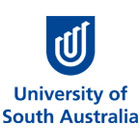Graduate Diploma in Design (Design and Construct)
Graduate Diploma in Design (Design and Construct)
This postgraduate qualification will equip you with a comprehensive understanding of the innovative, changing world of design. You will study emerging trends and technologies, contemporary design issues, construction challenges and management. With a strong focus on construction challenges, design principles and client considerations, you will build on your previously acquired…
Categories
COURSE DESCRIPTION
This postgraduate qualification will equip you with a comprehensive understanding of the innovative, changing world of design. You will study emerging trends and technologies, contemporary design issues, construction challenges and management.
With a strong focus on construction challenges, design principles and client considerations, you will build on your previously acquired knowledge and skill set. In addition to fundamental practical skills (you will spend a large portion of your time on-site) a key part of your learning will relate to advanced research skills and you will graduate with the cognitive skills needed to review and analyse research.
Some of the projects students have completed include the visitor accommodation at Port Resolution, Tanna Island, Vanuatu; Aboriginal ranger accommodation and research facilities in Fish River, Northern Territory; and accommodation and research facilities at Witchelina Station, South Australia. You will be involved in projects such as these from conception through to completion.
What you’ll learn
Emerging trends and technologies, contemporary design issues, construction challenges and research are key focuses of this graduate diploma. You will also:
develop design proposals
foster client relations
survey building sites
learn how to translate traditional drawing and design methods to specialised computer programs
develop research methodologies
Your career
This unique qualification integrates both design and construction, rather than focusing just on one specialisation. It is therefore particularly relevant for students who wish to pursue careers in areas such as:
architecture (further study required): design new buildings, and help to restore and conserve old buildings
interior design: design, implement and refurbish interior spaces
civil engineering (further study required): plan, design and oversee the construction of infrastructure such as roads, railways and bridges
project management: plan, direct and coordinate building projects and personnel; manage budget
To increase employability in this competitive industry it is recommended that students complete the additional year of study required at attain a Master of Design.
REQUIREMENTS
Applicants must have completed a three-year Bachelor degree from a recognized higher education institution, or equivalent, in a related discipline.
Alternative Entry
Applicants who have completed a Bachelor degree from a recognised higher education institution in an unrelated discipline, plus two years of professional experience in a related discipline, or applicants who do not have a completed degree but who have seven years of professional experience in a related discipline will also be considered.
Related design disciplines include:
Communication Design: visual communication design; graphic design; graphic communication; communication design.
Contemporary Art : visual art; contemporary art; illustration and animation.
Design and Construct: architecture; planning and urban design.
Industrial Design: industrial design; product innovation; product design; furniture design.
Interior Architecture: interior architecture; interior design; furniture design; architecture.
Sustainable Design: architecture; interior architecture; industrial design; furniture design; planning and urban design; contemporary art.
English Language Requirements:
IELTS score of 6.5 (with 6.0 in Reading and Writing); TOEFL iBT score of 79 with Reading and Writing not less than 18; TOEFL paper-based test (PBT) score of 577 with TWE of 4.5; Cambridge CAE/CPE score of 177; Pearson’s test of English (Academic) (PTE) score of 58 with Reading and Writing communicative scores not less than 50; CELUSA score of AE5.
EDUCATIONAL INSTITUTION
The University of South Australia is a globally connected and engaged university with industry-informed teaching and research that is inventive and adventurous. Ranked in the world’s top 50 under 50^ and with 100% of assessed research rated at or above world-class*, the University is young, innovative and offers students the chance to gain real-world experience.Focused on life beyond the classroom, the University of South Australia offers a practical approach to teaching and learning. Degrees are designed in partnership with industry, giving students opportunities to gain the latest insights and trends and ensuring they graduate career ready.^Ranked in the World’s Top 50 Under 50 – Ranked #29, 2021 QS Top 50 Universities Aged Under 50 and Ranked #46, 2022 THE Young University Rankings*2018 Excellence in Research for Australia (ERA), 4-digit Fields of Research




